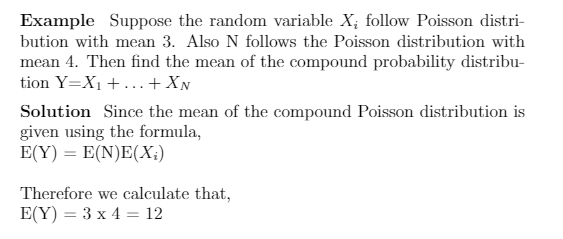A compound probability distribution is the distribution of some combination of independent and identically distributed variables whose parameters themselves follow some probability distribution.
Compound Poisson Distribution:
Suppose X1,…, XN are independent and identically distributed Poisson variables with N itself being a random variable following Poisson distribution then,
Y = X1+….+XN is said to follow compound Poisson distribution.
Then mean of this distribution is given as E(Y) =E(N)*E(Xi)

The compound Poisson distribution finds applications in the theory of stochastic processes and queuing theory.
Other examples of compound distributions are:
- A normal distribution whose mean follows normal distribution is once again normally distributed.
- A Poisson distribution whose parameter is distributed according to a gamma distribution gives a negative binomial distribution.
Mixture Distribution:
If we are given a collection (possibly uncountable) of random variables and we choose one of them randomly according to some probabilistic method then the resulting distribution so obtained is called a mixture distribution.